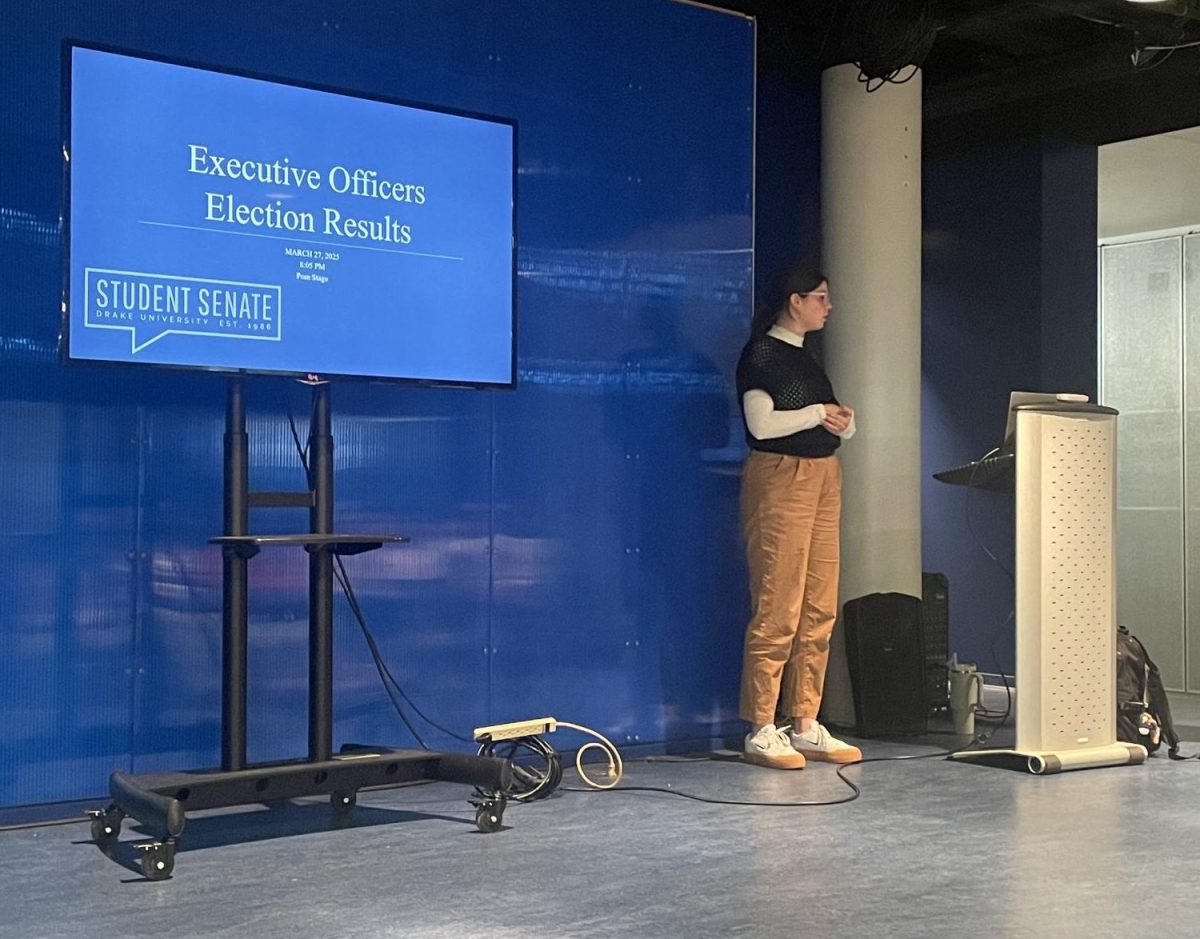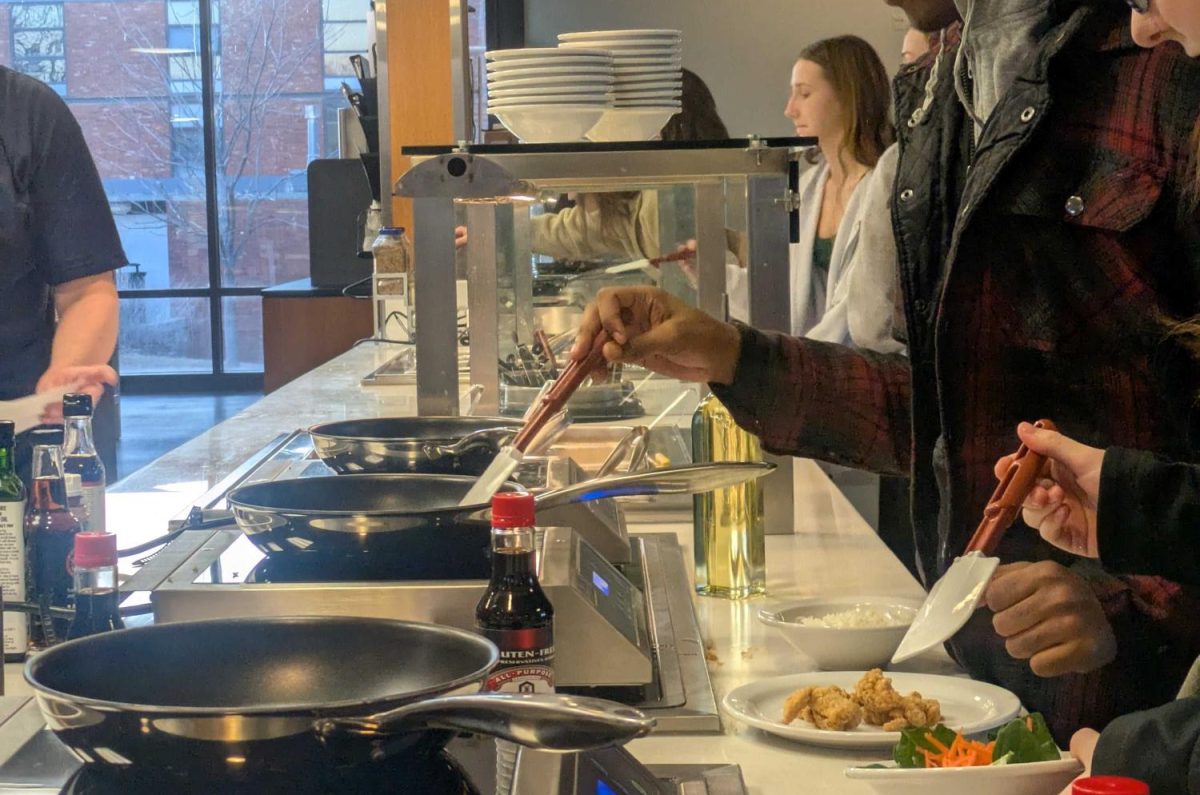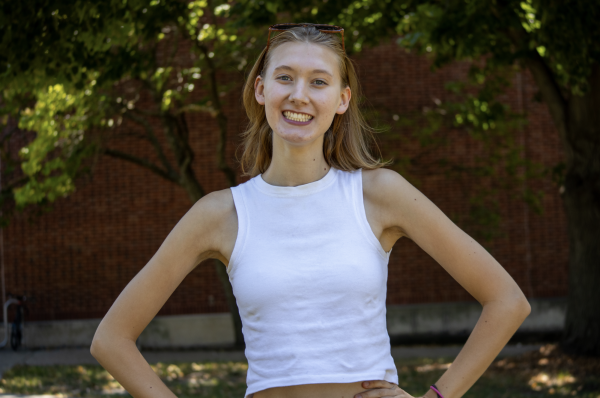In January, Drake administration approved an annual holistic wellness fee. Chief Student Affairs Officer Jerry Parker said the fee will go towards objectives such as continuing Drake’s contract with Broadlawns to allow for no copay and expanding the Counseling Center staffing.
The fee was passed without the approval of the Student Senate.
“They went over our heads for that one. I didn’t know about it until it was approved,” College of Arts and Sciences Senator Tiffany Lopez said.
Though the fee was brought to the senate’s attention at their Dec. 1 meeting, the fee – which will take effect starting in the fall 2023 semester – was approved upon students’ return to campus in February despite uncertainty expressed by senators.
For instance, Vice President of Student Organizations Trinity Harris expressed concern over the creation of a Drake-specific 24/7 crisis hotline.
“Why are we trying to branch out with 24/7 telehealth when there are other emergency lines that can be called?” Harris said.“We give those resources out as RAs, so why are we attempting to implement our own resources when we already have other resources readily available to students with specific lines and specific demographics as well?”
Multiple senators expressed support for the awareness and resources to assist students but sought more information regarding the implementation of those resources.
“I think it’s necessary and I think it’ll be helpful, hopefully,” Community Engagement Senator Aaron Kahn Gumm said. “I’m not sure exactly what the plan is regarding the money that they’ll be allocating. But I think, especially considering how much we hear about students getting burnt out with the culture of Drake Busy being so prominent, despite its unofficial existence, I think it’s necessary that we do have a pool of money to increase the utility of the mental health services.”
Lopez’s concern fell not within Drake specifically but rather with American culture.
“I do find that mental health is a very low priority with America itself,” Lopez said. “Then considering that we’re in Iowa, it’s very difficult for people to get help. It would be ideal if all of you could all go to the Counseling Center, but realistically, that’s not how you could run a school.”
Health and Safety Senator Breckyn Lyon remains optimistic that the fee will lead to positive improvement for student life.
“I have connected with students to hear their concerns and find ways to meet them where they are,” Lyon said. “I think it is undoubtable that there are severe concerns by students in regards to their own mental health and the mental health of their peers. While I cannot speak for everyone on this campus, I know that I am truly concerned when I look at the state of mental health on our campus.”
Parker has described the Holistic Wellness Fee as a necessary step in order to accommodate the spike in students seeking counseling in the years since the height of COVID-19.
“In pre-pandemic numbers, from the 2018-2019 academic year, we were at about 468 individual student visits,” Parker said.“Our numbers this past academic year, we exceeded 615 students. That’s a sizable increase in our student population, which then also causes longer wait times.”
Parker also said the fee would go towards adding one more full time counselor to meet the rising number of requests for appointments at the Counseling Center. However, so far the Drake community has only welcomed an intern to the Counseling Center.
“We are actively working to get a fifth full time counselor for the new clinic. In addition to that, we are also trying to increase the interns that we have,” Kayla Bell, the Counseling Center director, said in an interview with faculty senate beat writer Andrew Kennard this week. “Currently, we have two interns now instead of just the one that we’ve had in the past, and so the hope is that that would bring us to seven counselors available for students.”
Though the exact implementation of the holistic wellness fee remains guarded, Lyons expressed her support.
“I do want to point out that while some of this fee will be allocated to mental health resources on this campus, this fee truly is aimed at creating a more holistically well campus which spans from areas of nutrition, fitness, reducing stress and of course, mental health,” Lyons said.











